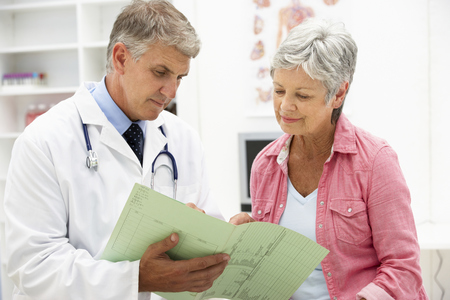Treatment
Treatments may include:
Behavioral Therapy
Behavioral therapy includes:
-
Making muscles stronger by doing
Kegel exercises
- This strengthens the muscles that hold the bladder in place and those that control urine flow.
- Painless electrical stimulation is sometimes used to strengthen the muscles more quickly and is helpful for stress incontinence.
-
Bladder training
- This can be done by setting a regular, timed schedule for emptying your bladder and by drinking fewer liquids.
Weight Loss
If you are a woman who is overweight or obese, losing weight may help to reduce the number of episodes due to stress or urge incontinence. Talk to your doctor about a weight loss program that is right for you.
Medication
Medicines may be prescribed to relax the bladder muscles. These types of medicines, called anticholinergics, are often used in treating urge incontinence. Examples include:
- Oxybutynin (Ditropan)
- Tolterodine (Detrol)
- Darifenacin (Enablex)
- Solifenacin (Vesicare)
Nerve Stimulation
Nerve stimulation is effective for urge urinary incontinence. It can be done by stimulating a nerve in your ankle. Or, it can be done by implanting a device that stimulates the bladder nerves.
Surgery
In women, surgery can repair weakened muscles related to bladder function. Other procedures involve collagen injections into the urethra. The bladder sphincter can be repaired or implants can be inserted.
Devices
Absorbent diapers are often used with incontinence.
Plugs and patches that hold urine in place are available for women. Catheters are sometimes used to treat more severe cases. Alternatively, pessaries may be used in women. Pessaries are devices that raise the uterus or the prolapsed bladder. This decreases pressure on the bladder.
Please be aware that this information is provided to supplement the care provided by your physician. It is neither intended nor implied to be a substitute for professional medical advice. CALL YOUR HEALTHCARE PROVIDER IMMEDIATELY IF YOU THINK YOU MAY HAVE A MEDICAL EMERGENCY. Always seek the advice of your physician or other qualified health provider prior to starting any new treatment or with any questions you may have regarding a medical condition. Copyright © 2024 EBSCO Publishing All rights reserved.
 Tracking Your Bladder Symptoms
Tracking Your Bladder Symptoms








